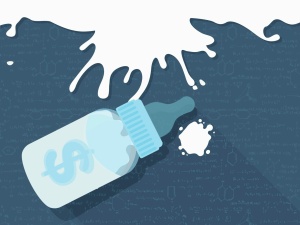
Milking It
Infant and young child feeding is key to improving child survival and promoting healthy growth and development worldwide. Although the World Health Organisation (WHO) strongly recommends breastfeeding as the optimal way of feeding infants, many women cannot or choose not to breastfeed their children. In those cases, parents are faced with an ever-increasing variety of infant milks. Infant milk is the fastest growing packaged food product with 7% annual growth. Our campaign is focused on the lack of scientific underpinning behind the infant milks that these companies put on different markets. While companies claim that their products are informed by the ‘latest developments in nutritional science’, the wide variety of products on sale within and between countries and the efforts of companies to push expensive premium products call such claims into question.
Reports

Based on science? Revisiting Nestlé’s infant milk products and claims
This report revisits Nestlé’s infant milk products and claims, a year after the publication of Busting the myth of science-based formula (below). In response to findings in Busting the myth in February 2018,...

Busting the Myth of Science-Based Formula – An Investigation into Nestlé Infant Milk Products and Claims
This report investigates the general, nutrition and health claims on infant milk products for babies under 12 months-old sold by the market leader, Nestlé. The investigation revealed many cases of inconsiste...

Milking It – How Milk Formula Companies are Putting Profits Before Science
This report represents the first global investigation into infant milks being sold for babies under 12 months old from the four leading companies: Nestlé, Danone, Mead Johnson Nutrition and Abbott.